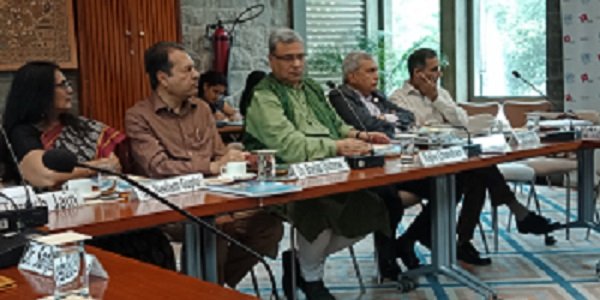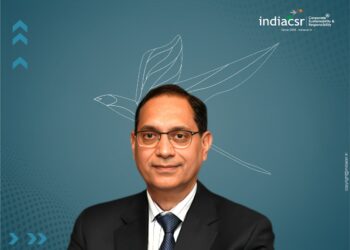New Delhi – The sustainable development goals cannot be actualised if children are not made stakeholders in the process, Dr. Bhaskar Chatterjee, Former Director General and Chief Executive Officer (CEO) at Indian Institute of Corporate Affairs (IICA) said at a roundtable discussion in New Delhi, on Wednesday (14 Aug).
Chatterjee was speaking on the role of Education for Sustainable Development (ESD) at the roundtable organised by United Nations Information Centre (UNIC) for India and Bhutan. The meeting was co-hosted by not-for-profit organisation Aroh Foundation and Brainwiz.
The SDG’s cannot be achieved unless India made a progress towards achieving these goals, Chatterjee pointed adding that the challenge before the country was to integrate ESD into the school curriculum.
“It has not really gained momentum,” he lamented.
Quality Education remains the fourth goal in the list of 17 SDGs. UN General Assembly formally adopted the 2030 Agenda for Sustainable Development, in September 2015. The global framework aims to redirect the world towards a sustainable, peaceful, prosperous and equitable growth path.
“Students [today] live in a cocoon. They have no idea of the outside world and no real engagement with the real situation,” Rajiv Chandran, Officer-in-charge at the UNIC for India and Bhutan said.
“Schools should be laboratories for ideas” Chandran said adding that the schools should adopt sustainable practices and engage communities to take the work forward.
Innovation and empathy were the platform on which ESD could be mainstreamed in school curriculum, he further said.
Dr. Neelam Gupta, President at Aroh Foundation, who was also present at the roundtable said integrating ESD’s in the early childhood education was vital for achieving SDGs.
Gupta said that policy and a strong political will is required to integrate ESD in school curriculum as children needed to be seen as agents of change.
AROH Foundation focuses on maximising the impact of government welfare programmes and CSR projects for leading corporates and PSEs, through end-to-end, integrated solutions, including consultation, planning and implementation. It has a presence across 18 states in the country.
Meanwhile, Brainwiz conducted a survey on the perception of SDGs among the youth in India. Its report draws attention towards the existing gaps in the awareness levels among the children in tier-1 and tier 2&3 cities.
Out of the 1086, respondents, 43.2% did not know about the SDGs. “Our education system fails to address sustainability as the most relevant topic of the day and thus the youth of our country hardly knows about the topic,” founder Tarush Jain said.
Brainwiz has been promoting sustainability measures in the education system and imparting 21st century skills through its programmes, in collaboration with UNIC, UNESCO-MGIEP and National Cadet Corps (NCC) – a youth wing of the Indian armed forces.
Dr. Biswajit Saha, Director (Training and Skill Education) at Central Board of Secondary Education (CBSE) emphasised on sensitising the teachers to take the message of sustainable development to students.
He acknowledged the magnitude of the problem, saying that there was no awareness about SDG’s or sustainability even among the school teachers. “Only about one lakh teachers knew about ESD or SDGs out of the 11 lakh teachers in CBSE,” he said.
CBSE was taking steps to correct that, he added.
Vikram Bhat, a representative of the Delhi Government working in the area of education cautioned against the potential disconnect between the idea of sustainability between the adult and the children.
Bhat said that the adult-centric idea of sustainability may not be helpful if the child is not in the same mind space. Children need to be sensitised that “this is equally your problem as you have more time to spend on the planet”, he suggested emphasising on the need for a behavioural change.
Kamal Singh, Executive Director at UN Global Compact Network of India sees the role of technology to take forward the agenda of integrating ESDs in SDGs. He said that the organisation will be “investing heavily” for capacity building in schools. Schools were coming to UNGC to learn global best practices, he added.























